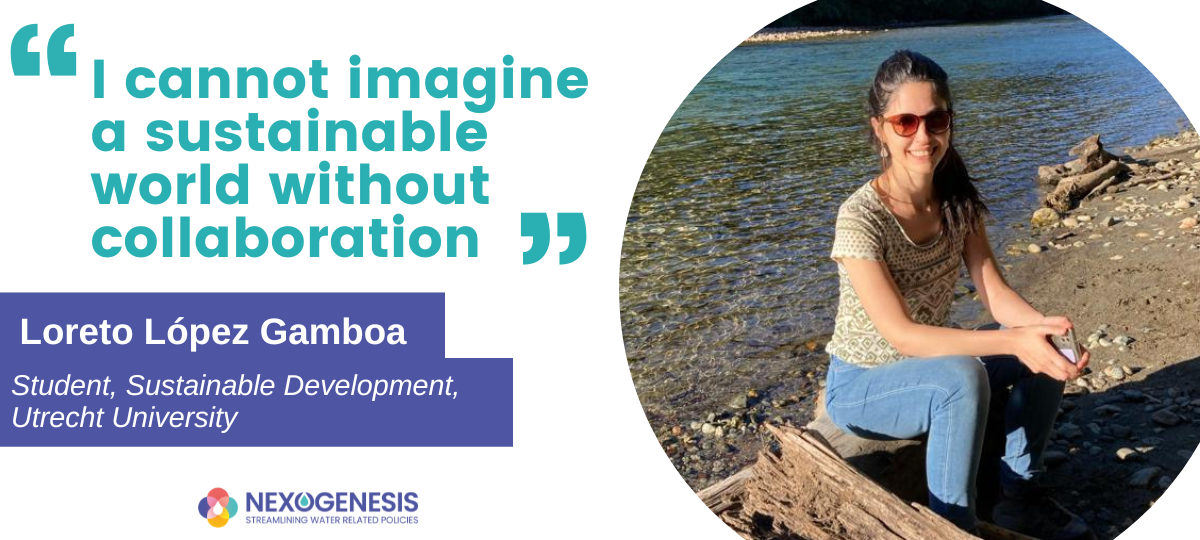
In the context of the NexusNet initiative, KWR is currently hosting a student from Utrecht University, Loreto López Gamboa is currently writing her thesis on the impact of Nexus projects. We have decided to ask her a few questions:
Could you please introduce yourself and share a little background on your education?
I am Loreto, I am a geographer and also did a postgraduate course on Circular Economy. I worked for 6 years as an environmental consultant at Arcadis (Chilean office), mainly elaborating environmental and social impact assessment studies. Now I am studying for a master’s degree in Sustainable Development at Utrecht University.
Why have you decided to focus your thesis on the impact(s) of nexus projects?
I decided to work on the Nexus approach since I wanted to learn about Nexus which is an interesting approach to addressing the complex sustainability challenges. I have learned that policy coherence and the involvement of stakeholders are crucial for solving sustainability issues and I believe that this approach by reducing trade-offs and promoting synergies among different sectors, can achieve such coherence and involvement. By assessing the impact of projects one can gain valuable learning on how to improve that impact. Therefore, I decided to focus my thesis on the impact assessment of Nexus projects, not only to learn about this approach but also to learn from implemented projects and contribute to improving both the performance and impact of future projects and thus, ultimately, contribute to solving sustainability challenges.
How are projects and initiatives such as NEXOGENESIS or NexusNet helpful?
I think that projects such as Nexogenesis are necessary nowadays. By using integrative approaches, these projects promote the participation of stakeholders which is crucial for creating the changes that we need to address sustainability issues. If we want to solve sustainability issues, we should address them with integrative approaches. Sustainable issues are too complex since involve diverse actors who have different interests and viewpoints, but also different knowledge, which is key to creating effective solutions for such complex issues. On the other hand, I would say that initiatives such as NexusNet are important to develop successful nexus projects since encourage collaboration among researchers, promoting the transfer and diffusion of knowledge and experiences.
What makes you the most hopeful for the future?
Personally, I cannot imagine a sustainable world without collaboration. I believe that thinking in collaboration gives me hope for the future, and I am happy to know that nowadays, the importance of approaches such as Nexus, which calls for collaboration, is being increasingly recognized for addressing sustainability issues. I think that we still have a lot of work to do and hopefully, these types of projects and initiatives can be implemented around the world.